Buy now on Amazon: My Life by Bill Clinton
 I have always known that Bill Clinton is a warm friendly guy but I never have had any personal contact with him- that is up until now. This autobiography makes you feel that he is sitting in your living room chatting with you. Chatting in some detail!! In addition to his obviously very good memory for faces, people and events he also met regularly during his presidency with a person who helped record an oral history which he was able to draw upon, as well as all appointment books and official papers, along with a staff to help him. But the product is still Bill talking away in great detail – often fascinating detail about the story of his life and story of the history that he made as President of the United States.
I have always known that Bill Clinton is a warm friendly guy but I never have had any personal contact with him- that is up until now. This autobiography makes you feel that he is sitting in your living room chatting with you. Chatting in some detail!! In addition to his obviously very good memory for faces, people and events he also met regularly during his presidency with a person who helped record an oral history which he was able to draw upon, as well as all appointment books and official papers, along with a staff to help him. But the product is still Bill talking away in great detail – often fascinating detail about the story of his life and story of the history that he made as President of the United States.
As he recounts his childhood and the early details of his life, he foreshadows his ability to connect with people and maintain them as friends. For example as a small kid maybe 5 or 6 years old in Arkansas there was a rich kid who lived across the street in a larger house . Bill was grateful that the boy’s parents and the kid were very friendly to him and invited him over to play. That kid was Mack McLarty who became his first White House Chief of Staff and one of his most trusted advisors. This story was played out time and time again as for example several of his college buddies who he met at Georgetown some of whom he met because they lived near him in his dormitory freshman year, were appointed to responsible jobs in his administration and were very special to him. Hence, the informal designation FOB – friends of Bill. While I don’t recall it was used in the book, it is certainly is a category which includes many people.. Clinton’s ability to relate, tied together with a tremendous memory, especially for people, was a great political asset. When he was running for Governor he would travel throughout the state and meet many people from all walks of life often in small towns, in diners, gas stations and sometimes in their homes. He would personally come to understand their special story along with their hopes and aspirations. When running for President about 20 years later he recognized these people on the campaign trail and reconnected with them. Of course there was no one in his early life that he felt closer to than his mother and his brother. His biological father had died before he was born.
Obviously he is a very bright guy who made it into Yale Law School and yet could skip some of classes in his freshman year so he could take on local responsibilities as part of the Democratic Party presidential campaign of that time
Clinton’s determination and ambition were demonstrated early in his political career. He rose quickly from Attorney General of Arkansas to Governor but was defeated in his quest for a second term . Hence the “ Come Back Kid “ as he then bounced back and was elected Governor’s for another two terms. The details of who encouraged him, who he emulated and how he conceptualized himself as a political person but yet as a person who really wanted to do things for people is all spelled out in great detail as you go on this journey with him through this book.
Reading this book is also like thumbing through an old family photo album and seeing people you know well as adults, but viewing them as young people just getting started.
His version of his encounter and relationship with Hillary comes across as a good friend who might be telling you about the details of the courtship with his wife. We come to appreciate the decisions that Hillary made to be with Bill and support him, long before she knew he might have such momentous success and the opportunities that would open up for her We meet George Stephanopoulos as a young untested campaign worker and of course we know how he ultimately became one of Clinton’s most trusted advisors and now is national network commentator. This story is repeated for so many familiar people.
Some critics have suggested that this book may be a little too long. But the fascination of this young man who grew up to be a two term President is in the details, It is the behind the scenes discussions, strategies, encountering dirty politics around him, the excitement of coming from behind, the election evenings, crisis in the White House and so much more, is what makes this book so valuable.
What also comes across in this book is Clinton’s genuine feelings for the oppressed and his desire to help people who can’t help themselves or those who are treated unfairly. His views of civil rights clearly come form his childhood and early experiences which allowed him to appreciate the prejudices which so many blacks in his southern rural area were experiencing and which he saw as wrong. As President, when he developed programs which were going to help downtrodden people, he was constantly relating them to people he knew and could name. This was quite consistent and very impressive.
Clinton’s early propensity for making and keeping friends is a recurrent theme throughout the book. Perhaps because he genuinely made good connections with people, he didn’t seem to question, as his career progressed, that famous celebrities, titans of industry and leaders of other countries valued his friendship because he was the most famous and powerful person in the world. He seems to take for it granted that the Prime Minister of Great Britain, the leader of the Russia, Princes and Kings were his good friends and that during and after his term in office he and Hillary would have dinner with them as one might be getting together with an old college buddy (which Clinton would also do). A most illustrative example of how he perhaps had a slight blind spot in this regard, is the story of Barbra Streisand and his mother. His mother was a great fan of this iconic singer. Therefore during the campaign, Clinton was thrilled when he could introduce his mother to Streisand. He then goes on to say they got along very well, became “very good friends” and they spoke weekly on the phone for many years??
Clinton knew if he were going to write a meaningful autobiography he was going to have to write about his sexual lapses, his impeachment and how he avoided having to step down as President. He acknowledged making a great mistake in his interactions with Monica Lewinski, a White House intern, and how he tried to avoid publicly acknowledging it. He related some of the details how he dealt this his wife and daughter in the face of this great humiliation. He shared how he was forced to sleep on the couch as Hillary came to grips with what he had done. However he goes into great detail of how he believes the Special Prosecutor Ken Starr over stepped his bounds and his authorization in trying to bring down the Clintons, first for Whitewater (accusations which were never proved of impropriety related to Hillary’s work with her law firm in Arkansas) and then extending his attacks against Clinton and trying to get information which would allow Congress to remove him from the presidency. He documents in some details what he believes were very unfair and untrue accusations, which were knowingly made by Starr against him, and how people who were his friends were badly treated because they would not misrepresent the truth. This segment of his biography will someday make a great documentary, movie, book, TV program etc.
Clinton had an opportunity to be president during a relative period of prosperity perhaps in part because of his policies. He was able to balance the budget (can you imagine that?) and sign into law quite remarkable legislation impacting our environment, healthcare
and social change. He spells them out and you can feel his passion and how proud he was of these accomplishments. He also recounts in great details what could have been perhaps his greatest accomplishment but yet fell short through no fault of his own. That was peace in the Middle East. He personally worked very hard with both sides and in the end had a solution which the Israelis could accept and many of the Arab nations including many Palestinians thought was fair but for some indefinable reason Arafat was not able to sign. Years later when Arafat wanted to sign on to these same things, the pendulum had past and the opportunity was lost (at least for then) .
The epilogue and any perusal of modern current events will reveal that Clinton has put his energies, his ability to raise money and his brilliance all in the service of humanity as he continues with trying to develop educational opportunities, provide treatment of AIDS and promote social change throughout the world. .
It is well known that one of the ways to go down in history is to write the history. That certainly is what a President who writes an autobiography is doing. Time will tell whether Clinton was as great a president. Despite his human foibles he has presented himself and the history of his life as a wonderful model for young Americans who want to make a difference in public service. His energy, sprit and caring for others is also a life lesson which we only hope might be contagious to many of the readers of his book..
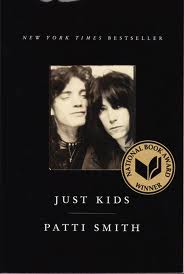 If you don’t know much about Patti Smith and you look her up you will see that she is a very accomplished poet, visual artist, song writer and performer. Her music is of the punk rock variety. She even co-wrote a song with Bruce Springsteen that made it to #13 and she has received all kinds of recognition for her body of work including being inducted into the Rock and Roll Hall of Fame. This book touches upon some of the many things that she has done but it is really a story of her relationship with a man who wasn’t her husband or the father of her children and wasn’t even a musician. The man however, was an artist and although I don’t believe she used the term about him, it is fair to say that he was her “soul mate.” The man is Robert Mapplethorpe and if by chance you don’t know much about him and look him up you will see that he was a preeminent photographer known best for mostly black and white photos, many Polaroid, and many of flowers and nude men . His photos were frequently known for their homoerotism. He also took many portraits including photos of Patti Smith and did the cover for many of her albums.
If you don’t know much about Patti Smith and you look her up you will see that she is a very accomplished poet, visual artist, song writer and performer. Her music is of the punk rock variety. She even co-wrote a song with Bruce Springsteen that made it to #13 and she has received all kinds of recognition for her body of work including being inducted into the Rock and Roll Hall of Fame. This book touches upon some of the many things that she has done but it is really a story of her relationship with a man who wasn’t her husband or the father of her children and wasn’t even a musician. The man however, was an artist and although I don’t believe she used the term about him, it is fair to say that he was her “soul mate.” The man is Robert Mapplethorpe and if by chance you don’t know much about him and look him up you will see that he was a preeminent photographer known best for mostly black and white photos, many Polaroid, and many of flowers and nude men . His photos were frequently known for their homoerotism. He also took many portraits including photos of Patti Smith and did the cover for many of her albums.
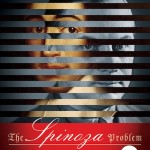
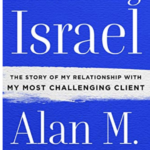

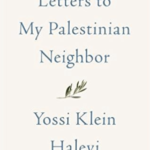
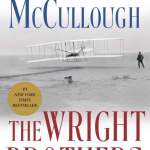
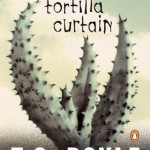
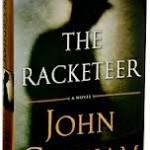

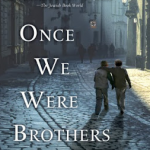




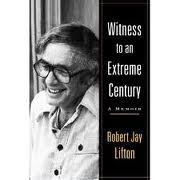 I had always wanted to learn more about the interesting work of psychiatrist Robert J. Lipton that I had heard about, but I never got around to reading his various books and other writings. This is the reason that I was pleased to embark upon reading this recent memoir. The author not only reviews his four main projects but he shares his recollections and feelings about the many people he has met along the way of his fascinating life’s work.
I had always wanted to learn more about the interesting work of psychiatrist Robert J. Lipton that I had heard about, but I never got around to reading his various books and other writings. This is the reason that I was pleased to embark upon reading this recent memoir. The author not only reviews his four main projects but he shares his recollections and feelings about the many people he has met along the way of his fascinating life’s work. I have always known that Bill Clinton is a warm friendly guy but I never have had any personal contact with him- that is up until now. This autobiography makes you feel that he is sitting in your living room chatting with you. Chatting in some detail!! In addition to his obviously very good memory for faces, people and events he also met regularly during his presidency with a person who helped record an oral history which he was able to draw upon, as well as all appointment books and official papers, along with a staff to help him. But the product is still Bill talking away in great detail – often fascinating detail about the story of his life and story of the history that he made as President of the United States.
I have always known that Bill Clinton is a warm friendly guy but I never have had any personal contact with him- that is up until now. This autobiography makes you feel that he is sitting in your living room chatting with you. Chatting in some detail!! In addition to his obviously very good memory for faces, people and events he also met regularly during his presidency with a person who helped record an oral history which he was able to draw upon, as well as all appointment books and official papers, along with a staff to help him. But the product is still Bill talking away in great detail – often fascinating detail about the story of his life and story of the history that he made as President of the United States.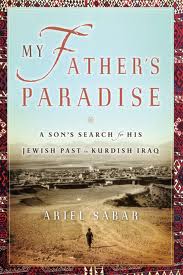
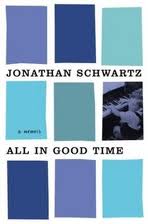 I have probably been listening to Jonathan Schwartz play Frank Sinatra and his genre of music on the radio for more than 30 years originally in New York and now on satellite radio in LA. His intimate understanding of the music ,the song writers and the singers was matched by his warm personal style of chatting with the audience. I guess I felt that he was one of my friends and I spent many weekend afternoons listening to him. I knew he was a well respected expert in this music, had been a singer himself and that his father was a well known song writer who wrote Dancing in the Dark and some other songs that were part of the American Song Book. Therefore I was very pleased when a dear cousin of mine presented me with this book as a gift. After reading it I feel that I now know “my friend” much better and as a psychiatrist I particularly understand some of the pain suffering that he has gone through in his remarkable life. Growing up he was surrounded by show business stars and has to be one of the few people on earth who can recall as a small child having Judy Garland come into his room and sing him “Over the Rainbow.” Unfortunately he had to also suffer the death of his mother while he was little kid. He also encountered a step mother who treated him much worst than was the case in the Cinderella story. He shared the sad story of his childhood excursions of sneaking into neighbors homes in Beverly Hills to hid behind their couches just to listen to their family interactions He did inherit his father’s musical ability, developed a wonderful ear for music and insight into the popular music of his early years and the genre which was built upon it. His desire to play music on the radio was manifested as an early teenager as he rigged up his own radio station when living in Manhattan which could be picked up in his apartment house on many radios. This well written memoir ( he is also an accomplished writer) is an intimate one in which we learn of his encounters with girls and young women and his hardy drinking. He paints a full rich picture of the nature of many of his difficult relationships with women. He seems to pull few punches as he tells of his flirting with suicide, his psychiatric admission and his time at Betty Ford Hospital. for his alcoholism. While I would not venture a psychiatric diagnosis, I will say that I do believe that the five years or so that he had with his mother and a connection with his father that while certainly rocky and tested at times allowed him to ultimately develop a warm mature personality. He seems to be a caring father with a very good relationship with his children. Perhaps the vignette which stands out most in my mind from the book is the story how Frank Sinatra ( certainly a symbolic father figure to him ) whom he did meet several times, arranged to have him fired from his radio job because he made some negative critique of one of his albums. Despite this traumatic event Jonathan Schwartz never faltered in his love for the man and his music. Although we are the same age, I am very grateful that he continues to be on the radio with no sign of slowing down and to be “my friend” and companion as I enjoy my favorite music.
I have probably been listening to Jonathan Schwartz play Frank Sinatra and his genre of music on the radio for more than 30 years originally in New York and now on satellite radio in LA. His intimate understanding of the music ,the song writers and the singers was matched by his warm personal style of chatting with the audience. I guess I felt that he was one of my friends and I spent many weekend afternoons listening to him. I knew he was a well respected expert in this music, had been a singer himself and that his father was a well known song writer who wrote Dancing in the Dark and some other songs that were part of the American Song Book. Therefore I was very pleased when a dear cousin of mine presented me with this book as a gift. After reading it I feel that I now know “my friend” much better and as a psychiatrist I particularly understand some of the pain suffering that he has gone through in his remarkable life. Growing up he was surrounded by show business stars and has to be one of the few people on earth who can recall as a small child having Judy Garland come into his room and sing him “Over the Rainbow.” Unfortunately he had to also suffer the death of his mother while he was little kid. He also encountered a step mother who treated him much worst than was the case in the Cinderella story. He shared the sad story of his childhood excursions of sneaking into neighbors homes in Beverly Hills to hid behind their couches just to listen to their family interactions He did inherit his father’s musical ability, developed a wonderful ear for music and insight into the popular music of his early years and the genre which was built upon it. His desire to play music on the radio was manifested as an early teenager as he rigged up his own radio station when living in Manhattan which could be picked up in his apartment house on many radios. This well written memoir ( he is also an accomplished writer) is an intimate one in which we learn of his encounters with girls and young women and his hardy drinking. He paints a full rich picture of the nature of many of his difficult relationships with women. He seems to pull few punches as he tells of his flirting with suicide, his psychiatric admission and his time at Betty Ford Hospital. for his alcoholism. While I would not venture a psychiatric diagnosis, I will say that I do believe that the five years or so that he had with his mother and a connection with his father that while certainly rocky and tested at times allowed him to ultimately develop a warm mature personality. He seems to be a caring father with a very good relationship with his children. Perhaps the vignette which stands out most in my mind from the book is the story how Frank Sinatra ( certainly a symbolic father figure to him ) whom he did meet several times, arranged to have him fired from his radio job because he made some negative critique of one of his albums. Despite this traumatic event Jonathan Schwartz never faltered in his love for the man and his music. Although we are the same age, I am very grateful that he continues to be on the radio with no sign of slowing down and to be “my friend” and companion as I enjoy my favorite music.